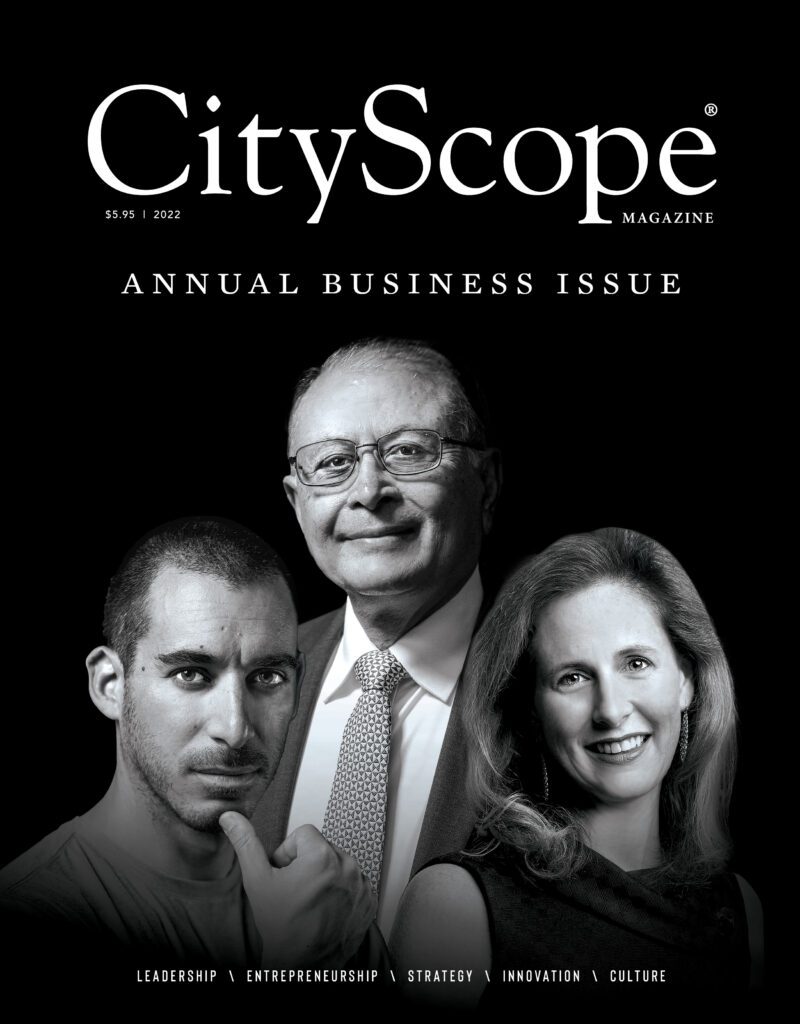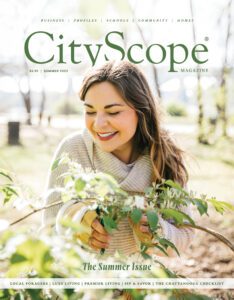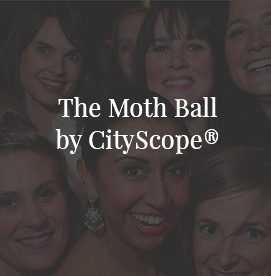By Candice Graham :: Photography by Stephanie Garcia
Adam Kinsey
president of the Chattanooga Choo Choo, Co-Founder of Track 29 & Revelry Room, Partner at Kinsey Probasco Hays
Q What role do innovation and creative problem solving play in your everyday business operations?
A Innovation hits two sides: the product that you offer the customer, and the way your team works to deliver that product. People are always evolving in what they are looking for, and I believe that hotel guests are craving local, authentic, and historic offerings rather than typical chain concepts. There is endless creative problem solving that goes into our businesses, but it all comes back to getting your team together to find the best solution and moving forward to tackle the obstacle.
Q What traits do you feel are most important for an entrepreneur to have?
A Vision to see the opportunity, patience to strike at the right time, perseverance to weather the storms, and the passion to do it all over again.
Q What have you learned from your father while pursuing your own business ventures?
A I’ve had a great group of mentors, and I’ve learned a lot, but there are a few main things. First: numbers don’t lie. Second: working together works, meaning that talking to and getting input from the community and your neighbors on a project produces a better overall product. Third: hire the best people to do the best job.
Q How do you see the future laying out for Chattanooga?
A The one word that I use to describe Chattanooga to folks is opportunity. There is so much opportunity in Chattanooga right now, and it is not limited to one industry. With great resources like CO.LAB, Society of Work, and the Innovation District, I believe that there has never been a better time to go take the leap on a business idea or other concept.
As downtown continues to develop and become denser, you will see the diversity and uniqueness of neighborhoods become more special. A decade ago you really only had the Aquarium District and Jack’s Alley, but now you have vibrant areas of downtown that include Southside, MLK, City Center, NorthShore, and the Arts District. There is also a lot of activity at UTC, and it’s awesome to see the campus spread out more. Our downtown is such a large land mass that we haven’t had the density that other cities have. We are starting to see that now at an explosive pace. It gets me really excited.





